WHO ARE WE?
WHO ARE WE?
We are a dedicated group of scholars passionate about fostering community-led transformative social innovations. We received the 2021 Transregional Collaborative Research Grant from the Social Science Research Council (SSRC) to conduct research titled “Small-Scale Fisheries, Governance, and Transformative Social Innovations in the Indian Ocean Region.” Our research project was built on and sought to contribute to the current scholarship on small-scale fisheries governance by offering a fresh look at the issues and challenges of governing small-scale fisheries in the Indian Ocean region using the transformative social innovation lens. Our project intersected with the current understanding that “governance‟ is both a problem and a solution to problems of small-scale fisheries and proceeded to explore solutions to the problem of governance from the perspectives, lived experiences, and real attempts of small-scale fishing communities to transform their Thailand, and Tanzania. Our goals were to explore the complexities of transforming the governance fisheries governance regimes.
The project focused on twelve community-led transformative social innovations in Bangladesh, India, Madagascar, South Africa, of small-scale fisheries in the Indian Ocean region, document pertinent examples of community-led social innovations, and contribute to designing policy and governance instruments for sustainable small-scale fisheries—this involved field research, data analysis, community dialogues, and scholarly publications.
More details of the project at: https://www.ssrc.org/grantees/small-scale-fisheries-governance-and-transformative-social-innovations-in-the-indian-ocean-region/
RESEARCHERS
RESEARCHERS
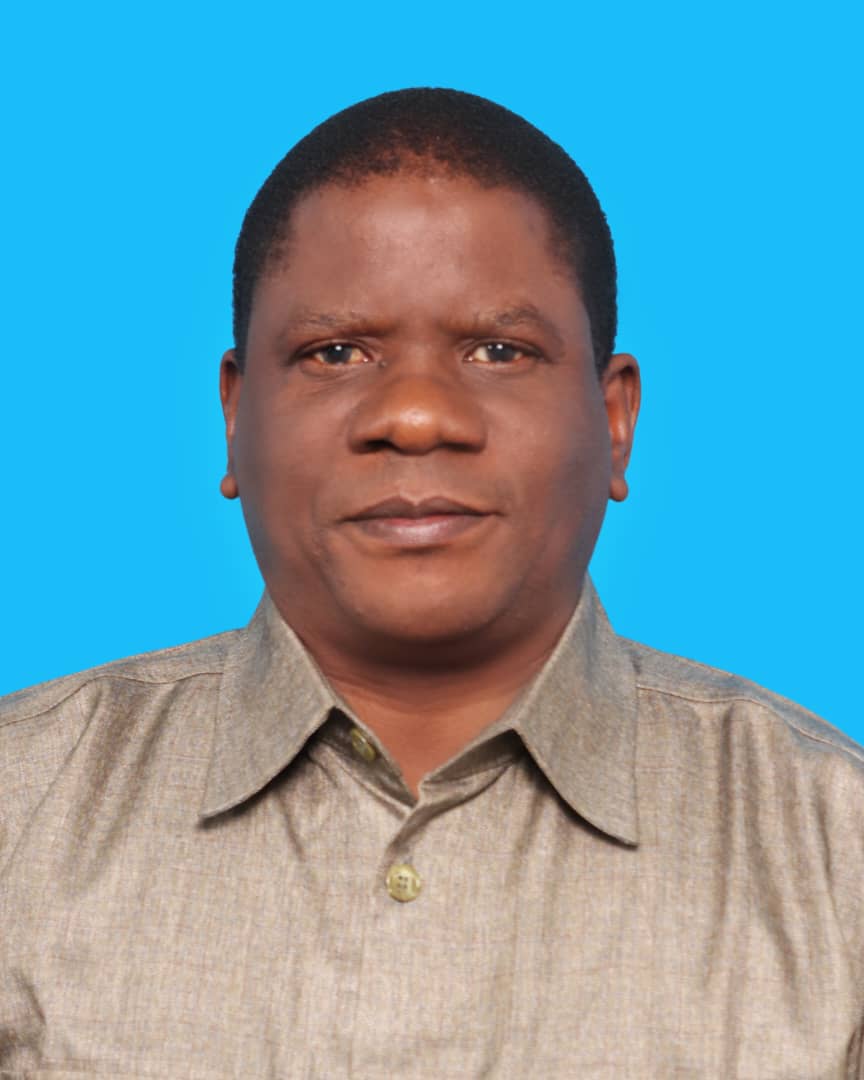
Dr. Almas Fortunatus Mazigo
Read more about Dr. Almas Fortunatus Mazigo
Almas Fortunatus Mazigo holds a PhD in Applied Ethics from Stellenbosch University in South Africa, a Master of Arts in Development Studies from the University of Dar es Salaam in Tanzania, and a Bachelor of Philosophy from the Pontifical Urbaniana University in Italy. Mazigo is a lecturer and researcher at Dar es Salaam University College of Education in Tanzania. He also serves as the coordinator of DUCE’s Center for Social and Policy Research. Mazigo has interest and expertise in phronetic social science research, monitoring and evaluation of development interventions, development ethics, and global justice, management of public service and organizational ethics, business ethics and corporate governance, ethics and leadership in business and politics, ethical climate change responses, sustainability thinking and practices, transformative social innovations, gender issues, and management of small and medium enterprises. He has successfully researched fostering responsible climate change management, sustainable business practices, cultures and ethics of sustainability, ethical leadership practices, and ethical issues in development practices, and published his research findings in prestigious international journals.

Prof.Johan Hattingh
Read more about Prof.Johan Hattingh
Johan Hattingh is a Professor of philosophy at the University of Stellenbosch in South Africa and was dean of the Faculty of Arts and Social Sciences at Stellenbosch University from 2013 to 2017. He specializes in applied ethics, ideology critique, development ethics, and environmental and climate change ethics. He was a World Commission on the Ethics of Scientific Knowledge and Technology (COMEST) member of UNESCO from 2004 to 2011. He was also the president of an Ad Hoc Expert Group convened in 2016 by the director general of UNESCO to draft a Declaration of Ethical Principles in Relation to Climate Change (adopted by the General Conference of UNESCO in December 2017). With more than 70 academic publications to his credit, he finds it fascinating to work at the interface of theory and practice in analyzing value disputes in the context of policy formulation, environmental decision-making and management, and ethical issues related to climate change.
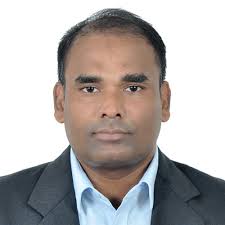
Prof. Mahmudul Islam
Read more about Prof. Mahmudul Islam
Mahmudul Islam is an assistant professor in the Department of Coastal and Marine Fisheries at Sylhet Agricultural University in Bangladesh. He received his PhD from the University of Bremen in Germany. His PhD research contextualized poverty and vulnerability in the livelihoods of coastal fishing communities in Bangladesh. With a background in marine science, oceanography, and fisheries development studies, Islam is an interdisciplinary marine social scientist interested in coastal social-ecological systems. He has over ten years of experience researching coastal communities, small-scale fisheries, and marine conservation in Bangladesh. Some of his works focused on policy and marine management. Thus, he has gathered experience in working at the science-policy interface. His recent research interests include marine protected areas governance, climate change impacts, and disaster risk reduction in coastal Bangladesh. Recently, he led a research project on implementing the Voluntary Guidelines for Securing Sustainable Small-Scale Fisheries (SSF Guidelines) in Bangladesh’s small-scale fisheries.
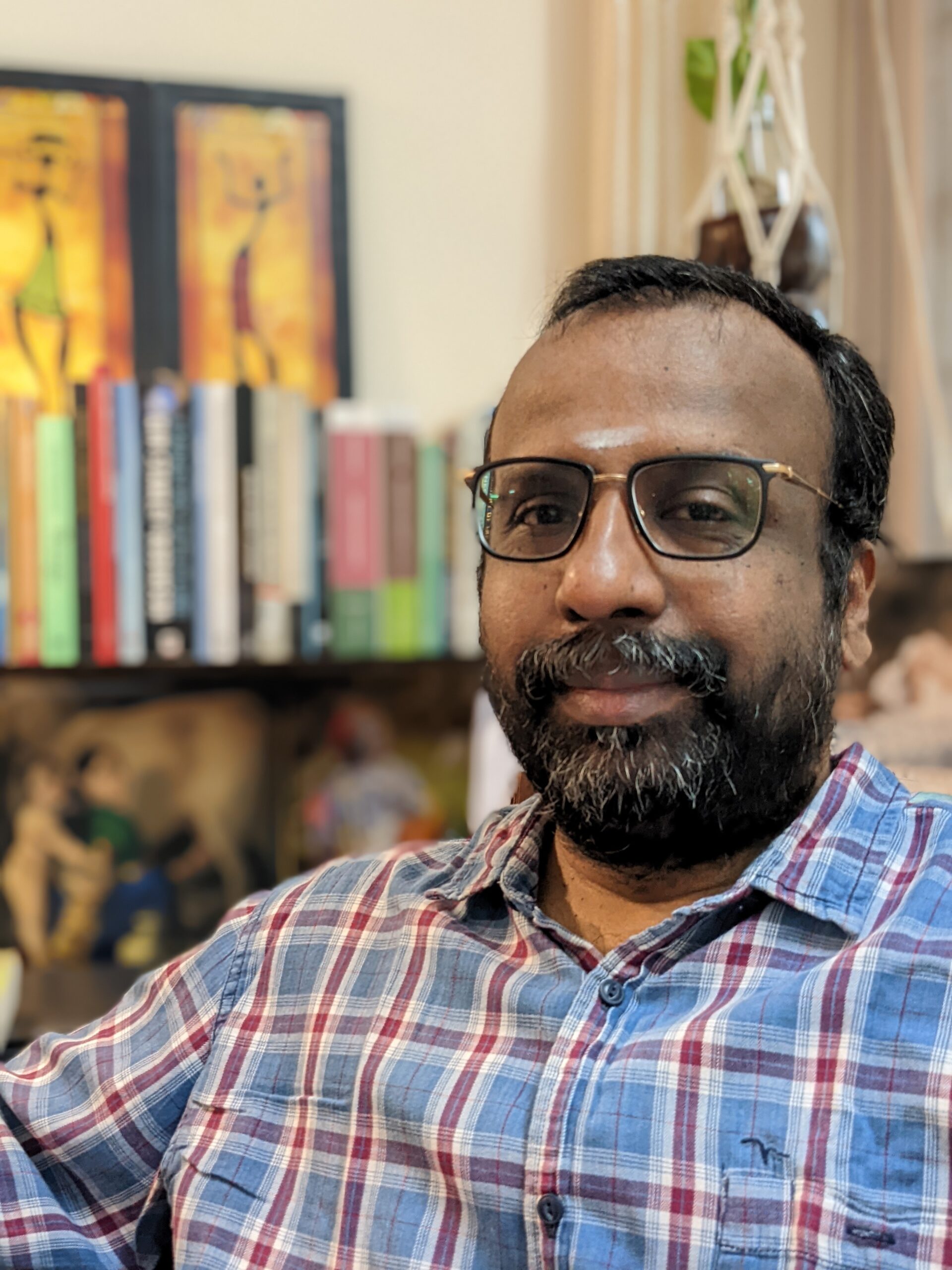
Dr. Prof. Sunil Santha
Read more about Prof. Sunil Santha
Sunil Santha is a faculty at the Centre for Livelihoods and Social Innovation, School of Social Work in TISS Mumbai. As a social work educator interested in action research and reflective practice, Santha strives to strengthen climate action and promote transformative social innovations. His curricular innovation includes developing context-specific models of entrepreneurial action and emergent livelihoods. At the Centre for Livelihoods and Social Innovation, Santha has developed the Adaptive Innovation Model, which strives to design people-centered adaptation strategies that will have the intent and effect of our decisions and actions on the structures and processes shaping equality and justice, care, and empowerment for those who are disadvantaged and vulnerable in society. Therefore, such an approach involves not only strengthening the adaptive capacities of vulnerable groups but also deconstructing certain dominant narratives linked to sustainable livelihoods and climate change adaptation. Sunil’s recent book Climate Change and Adaptive Innovation: A Model for Social Work Practice (Routledge, 2020) has evolved from these ideas, experiences, and learning.

Sariaka Olmstead-Rakotondrazafy
Read more about Sariaka Olmstead-Rakotondrazafy
Sariaka Olmstead-Rakotondrazafy received a master’s in forestry, environment, and development in 2014 from the University of Antananarivo in Madagascar (ESSA). Seeking to deepen her knowledge of oceans and the marine environment, she completed a master’s in marine and lacustrine science and management (Oceans and Lakes), an inter-university program organized by the Faculty of Sciences of VUB (Free University of Brussels). Working for different governmental projects and NGOs on coastal zone management, climate change, community livelihood, management plan of fisheries, and Marine Protected Areas management with coastal communities in various regions of Madagascar since 2012, she has developed a particular interest in ocean governance, small-scale fisheries, and coastal communities. In 2018, Olmstead-Rakotondrazafy received an award from the United Nations and the Nippon Foundation of Japan Fellowship. As part of the fellowship, she researched the Blue Economy and fisheries in Madagascar in collaboration with Saint Mary’s University in Canada. This inspired her to create Impacting Lives through Opportunities (SEILO) in 2020, a social enterprise that advocates for environmental protection and community empowerment.
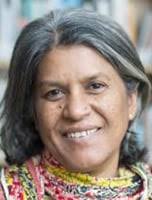
Prof. Moenieba Isaacs
Read more about Prof. Moenieba Isaacs
Moenieba Isaacs is a full professor with the Institute for Poverty, Land, and Agrarian Studies (PLAAS) at the University of Western Cape (UWC). She is the academic manager for postgraduate teaching and co-coordinator of accredited short-course training on the Political Economy of Land Governance in Africa. Her current research focuses on developing the concept of blue justice, linking it to spatial injustices and the gendered dynamics of women in living landscapes in and around enclosures in the blue economy. She has worked extensively with communities in South Africa and in engaged and reflective research, where she developed her thinking tools. She has and is participating in various research projects. She was the regional coordinator and founding member of TooBigToIgnore, a global network of small-scale fisheries research. She co-chaired the Human Dimension Working Group on Integrated Marine Bio-geo-chemistry Ecosystem Research (IMBER). She formed part of the UN Committee on Food Security’s High-Level Panel of Experts on Food Security and Nutrition (HLPE). She is part of the program committee of the Marine and Coastal Science for Management (MASMA) program—a regional competitive research granting mechanism providing funding and technical support for coastal and marine research, training, and communications in the Western Indian Ocean (WIO) region.

Dr. Julius Wilbard Mngumi
Read more about Dr.Julius Wilbard Mngumi
Julius Wilbard Mngumi is a lecturer at Dar es Salaam University’s College of Education (DUCE). He completed his PhD at the University of Glasgow in Scotland in 2015. His PhD thesis titled “Perceptions of Climate Change, Environmental Variability and the Role of Agricultural Adaptation Strategies by Small-Scale Framers in Africa: The Case of Mwanga District in Northern Tanzania” focused on farmers’ perceptions, knowledge, and understanding of climate change variability and its impacts in agriculture. His study also focused on the role played by the government in helping small-scale farmers adapt to climate change. It similarly explored indigenous knowledge and its role in informing farmers about climate change and its impacts on agricultural-dependent livelihoods.
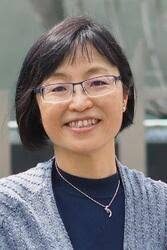
Prof. Kyoko Kusakabe
Read more about Prof. Kyoko Kusakabe
Kyoko Kusakabe is a professor of gender and development studies at the Department of Development and Sustainability, School of Environment, Resources and Development, Asian Institute of Technology in Thailand. She has over 20 years of experience in research and teaching gender and development in Asia, especially in the Mekong Subregion. Aside from her academic work, she has experience working with NGOs and government organizations for gender mainstreaming and integration of gender issues. Her research focus is on gender issues in labor/work, especially on labor migration, garment factory workers, informal employment, and agriculture and fisheries. She is currently an executive committee member of the Gender in Aquaculture and Fisheries Section of the Asian Fisheries Society. She is also a coeditor-in-chief of the Gender, Technology, and Development journal. She is a co-author of Thailand’s Hidden Workforce: Burmese Migrant Women Factory Workers (Zed Books, 2012, coauthored with Ruth Pearson) and coedited Fisherfolk in Cambodia, India, and Sri Lanka: Migration, Gender (Routledge, 2020).
More about our research journey at: https://items.ssrc.org/crisis-and-collaboration-across-the-indian-ocean/co-construction-of-knowledge-in-transregional-collaborative-research/
